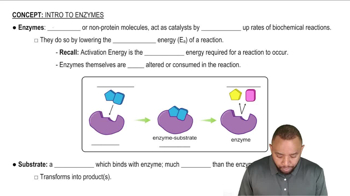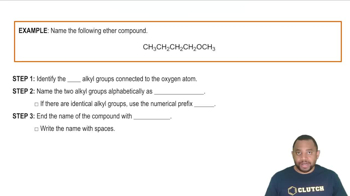What general kinds of reactions do the following types of enzymes catalyze?
c. Lipases
 Verified step by step guidance
Verified step by step guidance Verified video answer for a similar problem:
Verified video answer for a similar problem:



 :39m
:39mMaster Common Naming Concept 1 with a bite sized video explanation from Jules
Start learning